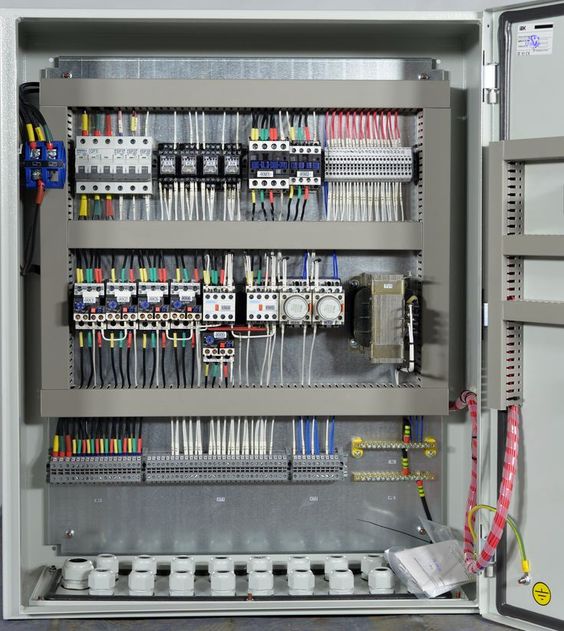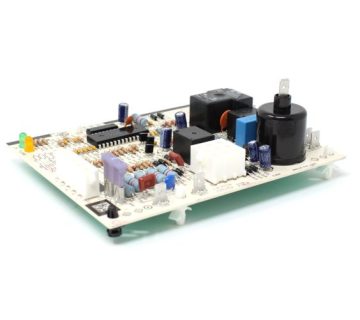Refrigeration control boards are electronic devices that are essential for maintaining optimal cooling efficiency in a wide range of applications. These control boards are specifically designed to monitor and regulate the operation of refrigeration systems, ensuring that they are operating at their highest level of performance.
The main purpose of refrigeration control boards is to maintain the desired temperature and humidity levels within a refrigeration system. They do this by continuously monitoring various parameters, such as temperature, pressure, and airflow. Based on this data, the control board can make necessary adjustments to the system’s operation, such as activating or deactivating compressors, fans, and defrost cycles.
One of the key advantages of using refrigeration control boards is their ability to implement advanced control algorithms and intelligent features. These algorithms take into account factors such as ambient conditions, load variations, and system efficiency to optimize the operation of the refrigeration system. By continuously analyzing and adjusting the system’s performance, the control board can ensure that the system operates at its peak efficiency, thereby reducing energy consumption and operating costs.
Refrigeration control boards also offer additional features that enhance the overall performance and reliability of the refrigeration system. For example, they can provide real-time monitoring and diagnostics, allowing for early detection of any potential issues or malfunctions. This proactive approach helps to prevent costly breakdowns and ensures uninterrupted cooling.
In addition to improving energy efficiency and reducing operating costs, refrigeration control boards also contribute to the overall sustainability of refrigeration systems. By optimizing the system’s performance, they help to minimize environmental impact by reducing greenhouse gas emissions and energy consumption.
Refrigeration control boards play a crucial role in optimizing cooling efficiency in various applications. Through their advanced control algorithms, intelligent features, and real-time monitoring capabilities, these boards significantly improve energy efficiency, reduce operating costs, and enhance the overall performance and sustainability of refrigeration systems.
Refrigeration control boards offer numerous benefits that greatly enhance the overall functioning and performance of refrigeration systems. One of the key advantages of using these control boards is the enhanced temperature control they provide. With precise temperature regulation, the control boards ensure that the desired temperature is consistently maintained, allowing for optimal storage conditions for various perishable items.
Moreover, refrigeration control boards minimize temperature fluctuations, which can be detrimental to the quality and freshness of stored products. By closely monitoring and adjusting the temperature, these control boards prevent drastic changes in the storage environment, thereby preserving the integrity of the items being refrigerated. This is particularly important for delicate goods such as fresh produce, dairy products, and medications, which can easily spoil if exposed to temperature variations.
The use of refrigeration control boards contributes to improved product quality and freshness. By maintaining a stable and optimal temperature, these control boards help extend the shelf life of perishable items, ensuring that they remain in prime condition for a longer period. This not only reduces waste but also enhances customer satisfaction by delivering goods that meet or exceed their expectations in terms of quality and freshness.
In summary, refrigeration control boards provide a range of benefits that positively impact the performance and efficiency of refrigeration systems. The enhanced temperature control they offer ensures consistent and precise regulation, minimizing fluctuations that can compromise the quality and freshness of stored products. By optimizing storage conditions, these control boards contribute to improved product quality and increased shelf life, ultimately resulting in reduced waste and heightened customer satisfaction.
Energy efficiency
- Optimal compressor operation
- Reduced energy consumption
- Lower operating costs
System monitoring and diagnostics
- Real-time monitoring of system parameters
- Early detection of faults and malfunctions
- Preventive maintenance and reduced downtime
Remote access and control
- Remote monitoring and control capabilities
- Adjustments and troubleshooting from anywhere
- Increased convenience and flexibility
Advanced features of refrigeration control boards
Adaptive control algorithms refer to a set of techniques that allow for the dynamic adjustment of system parameters in order to optimize system performance and efficiency based on real-time conditions. These algorithms are designed to continuously monitor and analyze the behavior of a system, making adjustments as necessary to ensure optimal operation.
The dynamic adjustment of system parameters involves modifying the values of key variables or characteristics within a system. This can include parameters, such as gains, time constants, or setpoints. By continuously monitoring the system’s behavior, adaptive control algorithms can detect changes in operating conditions and adjust these parameters accordingly.
Optimization based on real-time conditions is a key aspect of adaptive control algorithms. These algorithms utilize feedback from sensors or other sources of real-time data to assess the current state of the system. By considering factors such as environmental conditions, load demands, or performance metrics, the algorithms can determine the optimal values for system parameters in order to achieve desired outcomes.
The ultimate goal of adaptive control algorithms is to improve system performance and efficiency. By dynamically adjusting system parameters based on real-time conditions, these algorithms can optimize the system’s operation in a way that maximizes performance while minimizing energy consumption or other resources. This can lead to improved productivity, reduced costs, and enhanced overall system reliability.
Overall, adaptive control algorithms provide a powerful tool for optimizing the operation of complex systems. By continuously monitoring and adjusting system parameters based on real-time conditions, these algorithms can enhance system performance and efficiency, leading to improved outcomes in a wide range of applications.
Demand-based defrosting
- Defrost cycles based on actual need
- Reduced energy consumption and downtime
- Enhanced system reliability and longevity
Smart load management
- Load shedding during peak demand periods
- Balanced energy consumption across multiple units
- Improved grid stability and reduced utility costs
Data Logging and analytics
- Collection and analysis of system data
- Identification of trends and patterns
- Insights for system optimization and maintenance
Conclusion
Refrigeration control boards are essential components in optimizing cooling efficiency in various applications. With their advanced features and intelligent algorithms, these boards can enhance temperature control, improve energy efficiency, enable remote access and control, and provide valuable system monitoring and diagnostics. By investing in high-quality refrigeration control boards, businesses can achieve significant cost savings, reduce environmental impact, and ensure the reliable operation of their refrigeration systems.





Hi, this is a comment.
To get started with moderating, editing, and deleting comments, please visit the Comments screen in the dashboard.
Commenter avatars come from Gravatar.